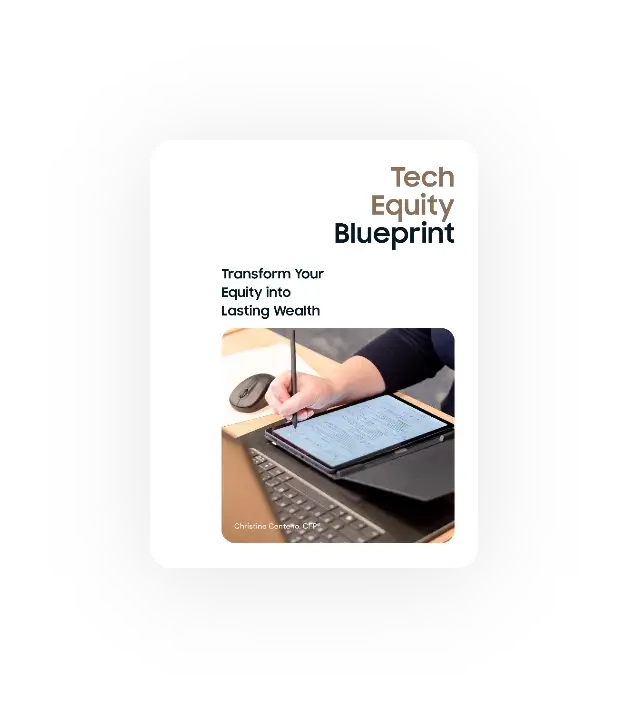BLOG / Retirement
Planning for Retirement? Avoid These 5 Common Mistakes Retirees Make

Planning for retirement can seem like an overwhelming task. It doesn’t have to be. Whether you are 10 or 30 years away from retirement, learning from others mistakes can help you make smarter financial decisions as you plan for your own retirement.
In my career as a financial planner, I’ve seen many retirees make these common mistakes:
1) Not keeping enough in a cash reserve.
Cash reserves are important in retirement because they are used to cover monthly retirement living expenses and unexpected expenses. When there’s not enough in your cash reserve to take care of these expenses, funds must be taken from investment accounts. This can be especially detrimental when the markets are down. Investments sold at a loss are never given the chance to recover their value. Having a sufficient cash reserve provides the flexibility to pull from your investments at the most opportune time. Typically, when entering retirement I recommend retirees have at least two years worth of expenses in a cash reserve. This, of course, will vary based on your individual situation and income sources.
2) Failure to develop a budget.
Failing to spend the time to develop a budget and stick to it can lead to unsustainable spending and the possibility of outliving your money. I’m not saying that you need to track every little expense, but you need to know where the guardrails are and stick to it. I often recommend that clients come up with a monthly or annual spending number to help keep them on track.
3) Not accounting for the high cost of healthcare before age 65.
Many want to retire early and fail to account for the fact that healthcare is going to be extremely expensive if purchased on the Marketplace prior to Medicare age, which is 65. Oftentimes, people are accustomed to employer plans that supplement a large portion of their premium cost. A couple retiring before Medicare age could easily spend up to $25,000/year in health care premiums until Medicare age. This cost can have a significant impact on your portfolio. I recommend that anyone thinking about retiring early visit www.healthcare.gov to research the cost of healthcare premiums in their area. Also, start inquiring with your HR Department about possible retiree healthcare benefits. These are few and far between today, but some do still exist.
4) Continuing to support adult children, when they can’t afford it.
I’ve seen this one all too often. Parents may be sticking to their own retirement budget, but continue to support adult children by paying rent, or their grandchild’s daycare or tuition, or by making loan payments on their child’s behalf. Many times I have seen parents act as their adult child’s safety net or emergency fund. Their child may need a new roof, and the parent pays for it since their child can’t afford it. While it is perfectly okay and normal to help your children financially (within limits of course), it should never be to your own detriment. Educating your children about finances early and helping them become financially independent are invaluable lessons that will help your family in the future.
5) Owning a second home.
Oftentimes individuals purchase a vacation home thinking it will be a great place for their kids and grand kids to gather, without fully considering the long term financial impact. During their earning years, they’ve had no problem with these costs, but when the paychecks stop it’s another story. The cost of upkeep and real estate taxes eventually become too overwhelming. The plan most of the time is to sell at retirement, but what happens when the property doesn’t sell when you need it to? I’ve seen multiple clients make the decision to retire before selling their vacation home and three years later, the property still hasn’t sold. They are faced with three years of expenses that weren’t planned for and have to come from their investments. It ends up impacting their ability to travel or do other things they’ve planned for in retirement.
Everyone’s situation is different when it comes to planning for retirement, being clear on your priorities and what you value can help you avoid these common mistakes in retirement.
Interested in learning more? Read more about my firm, and check out my service options.
Disclaimer
The information on this site is provided “AS IS” and without warranties of any kind either express or implied. To the fullest extent permissible pursuant to applicable laws, Simplicity Wealth Management LLC (referred to as “SWM”) disclaims all warranties, express or implied, including, but not limited to, implied warranties of merchantability, non-infringement, and suitability for a particular purpose. SWM does not warrant that the information will be free from error. None of the information provided on this website is intended as investment, tax, accounting or legal advice, as an offer or solicitation of an offer to buy or sell, or as an endorsement of any company, security, fund, or other securities or non-securities offering. The information should not be relied upon for purposes of transacting securities or other investments. Your use of the information is at your sole risk. Under no circumstances shall SWM be liable for any direct, indirect, special or consequential damages that result from the use of, or the inability to use, the materials in this site, even if SWM or an SWM authorized representative has been advised of the possibility of such damages. In no event shall Simplicity Wealth Management have any liability to you for damages, losses, and causes of action for accessing this site. Information on this website should not be considered a solicitation to buy, an offer to sell, or a recommendation of any security in any jurisdiction where such offer, solicitation, or recommendation would be unlawful or unauthorized.
